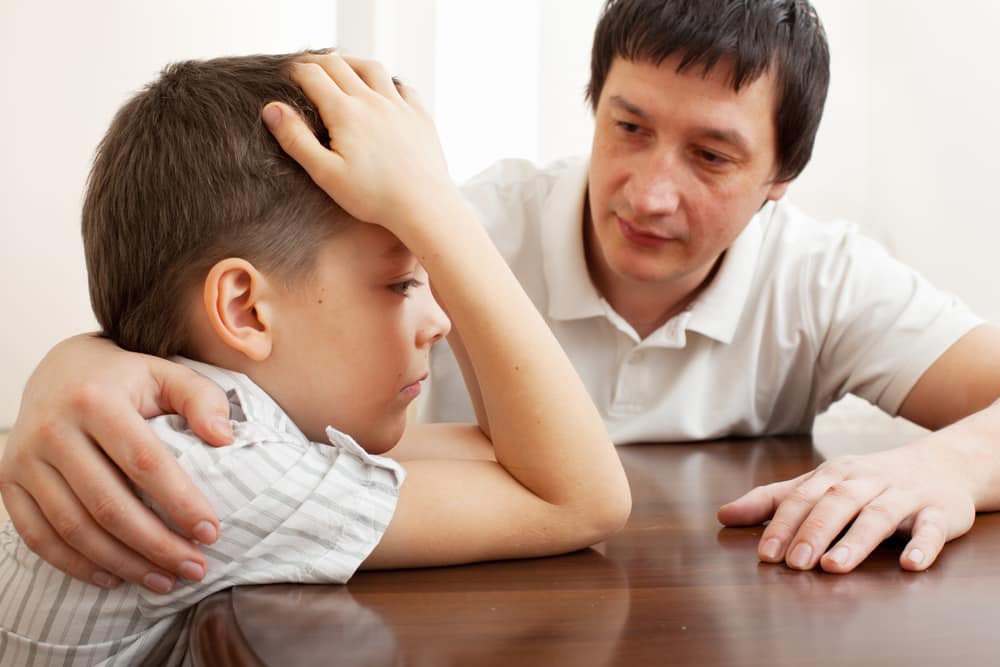Contents:
- Medical Video: 9 Weird Ways To Sneak Stress Relievers Into Class / Anti Stress School Supplies
- Reducing stress in children and adolescents
- 1. Help your child realize that he is being exposed to stress
- 2. Listen to the complaints
- 3. Help children understand their feelings
- 4. Teach children to manage emotions
- 5. Look for solutions together
- 6. Build a calm and safe home atmosphere
- 7. Take time for children
- 8. Support children with positive things
- 9. Make sure the child is sleeping and eating enough
Medical Video: 9 Weird Ways To Sneak Stress Relievers Into Class / Anti Stress School Supplies
Just like adults, children and adolescents can also be stressed. The causes vary. Starting from problems in the family, busy at school, quarrels with friends, family members who are seriously ill, to divorce parents. Now, the ability of children and adolescents to manage and reduce stress still needs to be trained. To help children deal with stress, see the following tips.
Reducing stress in children and adolescents
If stress in children is left alone, the impact is very detrimental to the long term. Severe stress may lead to depression. In addition, children have difficulty concentrating in school so their performance decreases. Not to mention his mental and emotional development can be disrupted if he constantly stresses.
So what are you waiting for? Immediately help children reduce stress in various ways.
1. Help your child realize that he is being exposed to stress
If the child has shown symptoms of stress, he or she is not necessarily aware that these symptoms are a form of stress. Then parents must help make children aware. For example, by saying, "Are you stressed, if you go home from school you still have to get lessons until evening?" Or, "I know you are stressed, but Mother not know the reason. Do you want to tell Mother? "
2. Listen to the complaints
If the child has begun to calm down and wants to open up, listen carefully to his complaints without the intention of blaming, judging, or patronizing. Let the child tell a story at length, don't be interrupted unless you want to make sure you understand what the child means.
3. Help children understand their feelings
After the child tells you about what makes him stressful, convince your child that you understand and really understand his feelings. Say it gently, "No wonder you feel very upset," or, "You must be very disappointed, kid?" Then, explain carefully if what is felt and experienced is part of life.
Sometimes parents can forget that children can also experience failure or difficulty. You may also expect children to be successful at school, have lots of friends, always be cheerful, and never encounter difficulties in their lives.
So, make this opportunity a place for your little one to recognize negative emotions and understand them as a normal part of life.
4. Teach children to manage emotions
When you understand that negative emotions are natural, help children manage their emotions well. Remember, each child is different so the way to manage emotions is also different.
There are children who can feel better after exercising or moving actively. There are also those who will be more relieved and calm when they cry. Therefore, you must be sensitive to see and want to try various ways.
5. Look for solutions together
The next step is to find solutions together. Ask the child what he wants and find the middle ground. For example, children are stressed because they have to change schools and they are not willing to separate from their friends. You can advise your child to invite old friends to play at home on weekends.
6. Build a calm and safe home atmosphere
To reduce stress, make sure the atmosphere at home is quiet enough so that he feels safe with his family. The problem is that if you wake up every morning you are rushed and yelled at or if your parents fight constantly, the child becomes even more stressed.
7. Take time for children
In addition to building a comfortable atmosphere at home, you should also spend quality time with your child. Whether it's just accompanying him to eat or listening to his complaints every day. Assure your child that you are always there if he needs you.
If you work in the office every day, try calling your child more often. For example if a child has gone home from school. Also try to go straight home if the work in the office is finished.
8. Support children with positive things
So that children can reduce stress, accompany children and provide positive support. Give praise if he successfully passes one day without crying, for example. Besides that, don't forget to encourage your child with hugs, kisses, or encouraging words every day.
9. Make sure the child is sleeping and eating enough
Children who are stressed can lack sleep and eat less. It is your job to monitor and ensure that the child stays well enough to sleep and eat enough. Invite children to live a healthy lifestyle, for example with regular exercise so that he can sleep better and have more appetite.













